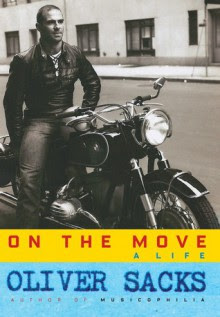 |
| 2.5 out of 5 stars |
Why is it so hard to make lasting changes in our companies, in our communities, and in our own lives?
The
primary obstacle is a conflict that's built into our brains, say Chip
and Dan Heath, authors of the critically acclaimed bestseller Made to
Stick. Psychologists have discovered that our minds are ruled by two
different systems - the rational mind and the emotional mind - that
compete for control. The rational mind wants a great beach body; the
emotional mind wants that Oreo cookie. The rational mind wants to change
something at work; the emotional mind loves the comfort of the existing
routine. This tension can doom a change effort - but if it is overcome,
change can come quickly.
I'n giving this book 2.5 stars—absolutely average. Because I think
that I have seen it all and tried it all before. And I think the book
could have been cut by several chapters without being hurt at all.
I
like the basic metaphor of this book: the emotions as an elephant, the
intellect as mahout. The rider (as the Heaths call the mahout) has
limited amounts of strength and will-power to use to direct the
elephant; the elephant has to be cooperative, or the rider won’t get
where she wants to go. Also discussed is the path—the environment which
we can manipulate to steer ourselves into the desired habits and
behaviours. [See also:
Slim by Design by Brian Wansink re: changing the environment to facilitate change].
I think the examples given in
Switch
are much more applicable to the work place than to the individual
household. I’ve been trying to get myself to do basic housework as I go
each week, rather than storing up misery for myself on the weekends. But
so far, I just can’t get my elephant to give a damn about the
situation. The mahout tries her best, but very little housework gets
done.
The authors also use an example of teaching a monkey to
use a skateboard, using mango bits as rewards. They suggest that lavish
use of rewards will help with eliciting the desired behaviour. I have
used this strategy on myself with limited success—do X and then you can
read a chapter of your book or phone someone you want to talk to. The
tricky thing is then to stop at one chapter and do another chore before
reading the next chapter (my elephant is a tricky one).
Another
suggestion in the book is linkages of behaviours—look for a bright spot
in your routine, something that you have no problem doing, then link it
to another desired action. This was how I trained myself to floss my
teeth EVERY evening. I slotted that task in between washing my face and
brushing my teeth. After a year and a half of this, I am finally to the
point that it takes a major catastrophe to prevent me from flossing.
However, I’m still working on linking setting up my coffee maker in the
evening to doing any dishes that won’t go in the dishwasher. That was my
one New Year’s Resolution for 2015 and at the 6 month point, I still
haven’t performed this task reliably. Unfortunate, as both my elephant
& mahout enjoy getting up to a clean kitchen.
The Heaths also take a page out of the FlyLady’s book [
Sink Reflections : FlyLady’s Babystep Guide to Overcoming Chaos]
by recommending breaking tasks down into tiny sections—making the goal
so small that the emotional elephant isn’t spooked by it. Marla Cilley
(the FlyLady) recommends 5 minute cleaning bursts on the theory that you
can force yourself to do almost anything for only 5 minutes and that a
small success will almost always carry you along to do more. This works
for me to some extent—some days I designate as “It bugs me so I fix it”
days. If I notice a dusty window sill, I go get a cloth and clean it.
Then I may go and check all the other window sills and make sure they
are clean too. I notice a grimy light switch—suddenly it’s “clean all
the light switches” day.
I also have experience with trying to manipulate my environment to make being tidy an easy option. [See
Organizing from the Inside Out
by Julie Morgenstern for more tips on this]. I’ve moved my filing
cabinet to the dining room where I seem to like to open the mail.
Sometimes the contents make it into the files, but once again, not on a
reliable basis.
So, I need to find myself a reliable EMOTIONAL
reason to keep up with these tasks—and I haven’t come up with one yet.
My solution to the situation is usually to invite guests, spurring
myself to spruce up my apartment. So far, peer pressure is the only
thing that works every time for me! And the Heaths also recommend that,
so I may just have to stick with it and invite folks in more often.
Wish there was a little more to the book than that—I am apparently an awfully recalcitrant housekeeper.












